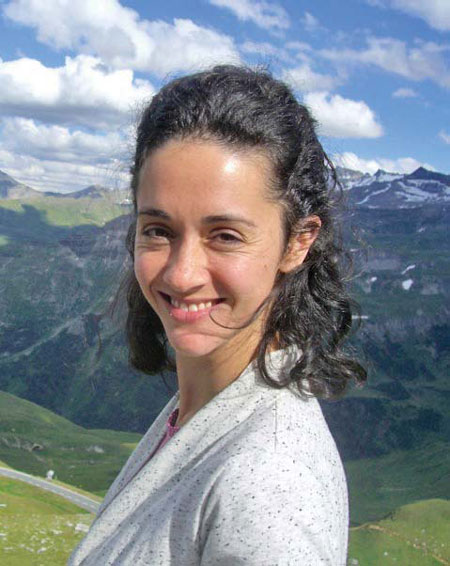Honey maker is a money maker
Updated: 2011-10-28 11:44
By Todd Balazovic (China Daily European Weekly)
|
|||||||||
|
|
Development aid gets a personal and practical touch that enriches those who take part
Profit is not a dirty word for Alia Malik, who is turning a penny or three as she helps the less fortunate. The co-founder and director of Shangrila Farms, which sells homegrown organic honey, coffee and skincare products, has spent the past two years building an enterprise that gives rural people the chance to be involved in fair-trade business. By nurturing small communities in Yunnan province, Malik is leading the charge for "social enterprise" in China by providing all-natural products to customers and long-term training and better-than-market prices to their producers.
"It's a business. It is trying to exist so it can turn profits while also trying to achieve social and environmental outcomes for the communities we work with," Malik says.
The 29-year-old New York native first came to Beijing in 2003 to visit her family, where her father was working with the United Nations Development Program.
While she had traveled to many developing countries when she was studying, China stood out, she says.
"It was just so interesting, the people, the places. At the time it was developing so quickly as well, unlike anything I've seen before. You could go to sleep one day and the next the entire street outside your apartment would be completely transformed."
Malik spent a year studying Chinese in Beijing before moving to Britain, and gained a master's degree in development studies at Cambridge University. It was there that she first came across the idea of social enterprise.
She was impressed with the idea of combining business with philanthropy, but skeptical that it could work.
After gaining her degree, Malik spent several years working on various research and development projects in countries such as Kenya and Uzbekistan, providing aid to rural communities in need.
She saw the immediate benefits of services, such as providing tablets for clean drinking water or insect nets to prevent malaria. But she also began to realize how weak traditional development strategies were.
"With rural government projects (there is) a planned timed limit. There's a budget, the phasing in and phasing out stages. Whether it's for a year or five years, at some point the project closes and you don't know what happens."
Often the benefits of such projects ebb away, she says.
"This is what got me interested in the model of social enterprise - to create something that exists as more than just a project. In theory, you should be able to have stable benefits for the communities while also surviving as a business."
Malik returned to Beijing in 2008 to pursue her newfound enthusiasm and began working with organizations focused on helping jump-start such businesses in the capital.
However, there was little interest by entrepreneurs in businesses that did not focus on profits.
At the same time, Malik and her sister Sahra were working to raise money for the Yunnan Mountain Heritage Foundation, an NGO whose focus is alleviating poverty. Malik's mother runs the NGO in southwestern Yunnan province. The two sisters' efforts centered on marketing products generated by the farming communes involved with the foundation.
For Malik, it was mainly about raising funds by selling organic honey produced by beehives in one of Yunnan's sprawling nature reserves.
For her sister, it was about taking advantage of the flourishing coffee crops of the subtropical region.
"There was a lot of satisfaction when I saw that first jar of honey, when I saw something that was just an idea become reality," she says.
Seeing the lack of social enterprise business in China and the opportunity to capitalize on the products already being produced by their mother's NGO, Malik quit her job and with her sister decided to set up Shangrila Farms in Beijing in 2009.
That led her from theorizing about social enterprise to pulling up her sleeves and doing it.
"Eventually I decided just to take the plunge."
The two-person operation started simply, with neither taking a salary, but has slowly begun to prove successful.
Late last year the pair appeared on Chinese television talking about their efforts with Shangrila Farms. It was after that appearance, Malik says, that they knew they were onto a winner.
Following their 10-minute TV appearance, they were overwhelmed with Internet orders, and the following day their stock sold out.
"China is becoming increasingly socially aware. People are volunteering, and more people are working in environmentally and culturally conscious organizations," Malik says.
"But until you actually see success you don't know if your concept is actually meaningful to people. I think that appearance showed that ours was."
With their products now being offered in more than 50 shops in Beijing and Internet orders booming, Malik says they are eyeing locations in Shenzhen, Guangzhou and Shanghai.
"I feel like we've achieved a loyal customer base. The people who are buying our products love our products. Now we want to hear more feedback from the Chinese. We want to have a broader outreach to the Chinese consumers."
And as her business grows, so does Malik's drive to benefit rural areas.
Using their success, Malik says they plan to train more people in Yunnan in beekeeping to give them the skills needed to earn a reliable income.
"Business doesn't have to be just about money. If more businesses can balance profits and people, everyone can benefit."












